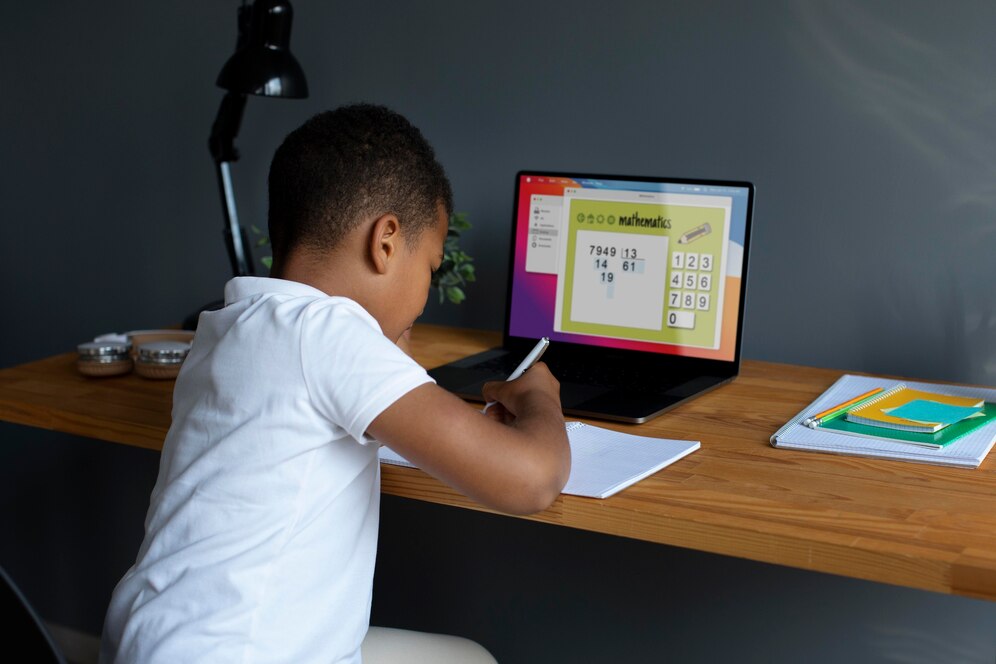Ever felt like studying is just one long, never-ending task? You sit down, open your books, and suddenly remember you need a snack, check your phone, or rearrange your desk. Yeah, we’ve all been there!
But here’s the thing—effective study habits can make a huge difference. They help you stay focused, retain more information, and actually enjoy the learning process (yes, it’s possible!). So, let’s dive into nine simple yet effective tips to help you build better study habits.
1. Create a Study Schedule

Following a consistent study schedule helps you manage your time and avoid last-minute cramming. Instead of studying whenever you “feel like it” (which might not be often), set specific times each day for focused learning. Figure out when you’re most productive—some people think better in the morning, while others work best at night. Stick to your schedule as much as possible, treating it like an important appointment. Over time, this routine trains your brain to focus during study sessions, making them more effective. A study planner or digital calendar can help you track your schedule and avoid missing key study times.
2. Find Your Study Spot

Your study environment plays a huge role in your ability to focus. If you try to study in a noisy or distracting place, your brain will struggle to absorb information. Find a quiet, comfortable space where you can focus without interruptions. A dedicated study area, such as a desk or library, signals to your brain that it’s time to work. Avoid studying in bed—it’s too easy to doze off! Keep your space organized, ensure good lighting, and have all your study materials within reach. A clutter-free environment helps create a clutter-free mind.
3. Break It Down
Long study sessions can lead to burnout and mental fatigue. Instead of forcing yourself to sit for hours, break your study time into manageable chunks. The Pomodoro Technique is a great way to do this—study for 25 minutes, take a 5-minute break, and repeat. This method keeps your mind fresh and helps you retain information better. If 25 minutes feels too short, adjust the timing to fit your concentration span. Short, focused sessions are far more effective than marathon study sessions that leave you exhausted and struggling to remember what you just read.
4. Eliminate Distractions

One of the biggest study killers? Distractions. Your phone buzzing with notifications, social media feeds calling your name, or background noise can easily throw you off track. To stay focused, put your phone on silent or use apps like Forest, Freedom, or Focus Keeper to block distractions. If you’re studying on a computer, resist the urge to open multiple tabs unrelated to your work. Let your family or roommates know you’re studying so they don’t disturb you. The less you allow distractions to interfere, the more efficient your study sessions will be.
5. Take Good Notes

Effective note-taking is a game changer. Instead of writing down everything word-for-word, try summarizing the key points in your own words. Use bullet points, diagrams, or mind maps to make the information more visually appealing. Color-coding can also help you categorize topics and make it easier to recall details later. Experiment with different note-taking methods like the Cornell Method or concept mapping to find what works best for you. The goal isn’t just to write things down but to make them easier to review and understand when you go back to study.
6. Test Yourself
Reading and re-reading notes may feel productive, but active recall is a far more effective way to retain information. Test yourself by using flashcards, practice questions, or even teaching the topic to a friend. Self-quizzing forces your brain to retrieve information, strengthening your memory in the process. If you’re studying for exams, practice under timed conditions to simulate the real test environment. This builds confidence and reduces anxiety when the actual exam comes around. The more you challenge yourself, the better prepared you’ll be.
7. Stay Organized

A cluttered study space can lead to a cluttered mind. Keep your materials organized so you don’t waste time searching for notes, books, or stationery. Use binders, folders, or digital apps to categorize your notes by subject. Keep a to-do list or planner to track assignments and deadlines so nothing sneaks up on you. Digital tools like Notion, Evernote, or Google Keep can help keep your study plans structured. An organized approach to studying helps you stay on top of your work, reduces stress, and makes it easier to review material when exams are near.
8. Stay Active and Hydrated
Studying for hours without moving can make you feel sluggish. Your brain needs the right nutrients to perform at its best. Stay hydrated by drinking plenty of water and avoid excessive caffeine, which can lead to energy crashes. Take short breaks to stretch, walk around, or do some quick exercises to keep your blood flowing. Even a 5-minute movement break can refresh your mind and help you refocus. Healthy snacks like nuts, fruits, or yogurt can also provide a steady energy boost without the sugar crash. Taking care of your body keeps your brain sharp and ready to learn.
9. Reward Yourself

Studying doesn’t have to be all work and no fun. Set small goals and reward yourself when you reach them. For example, after completing a study session, you can watch an episode of your favorite show, grab a treat, or take a short nap. Rewards keep you motivated and make studying feel less like a chore. Just be mindful of balance—don’t let a 10-minute break turn into a 2-hour YouTube binge! A little reward system can go a long way in keeping you on track and making studying something you actually look forward to.
Final Thoughts
Good study habits don’t develop overnight, but with consistency, they become second nature. Try implementing one or two of these tips today and gradually build up. The key is to work smarter, not harder. Stay patient with yourself, and remember that progress takes time.









